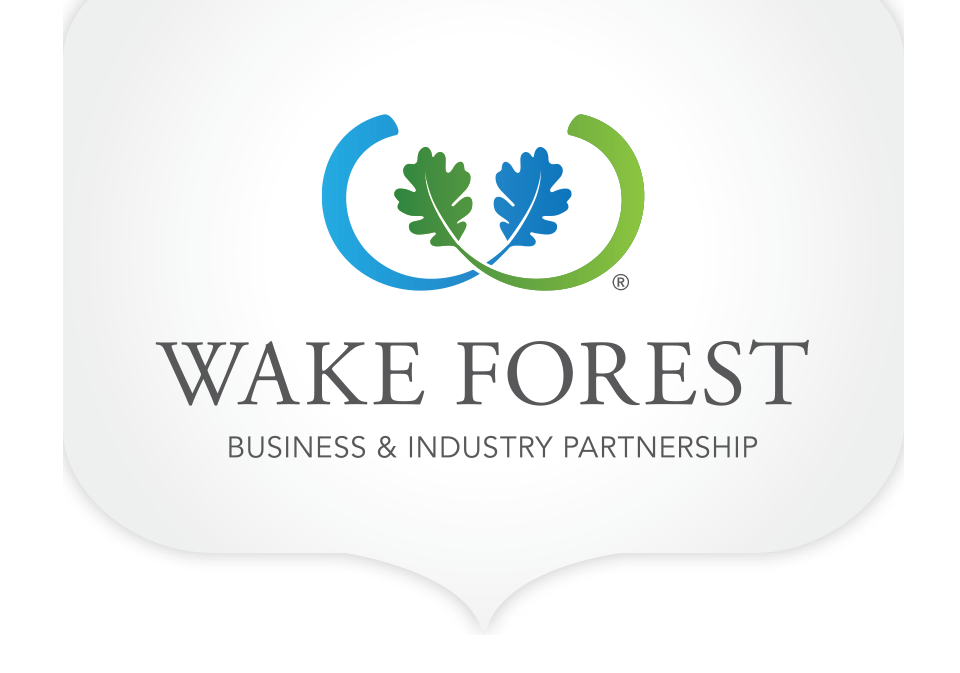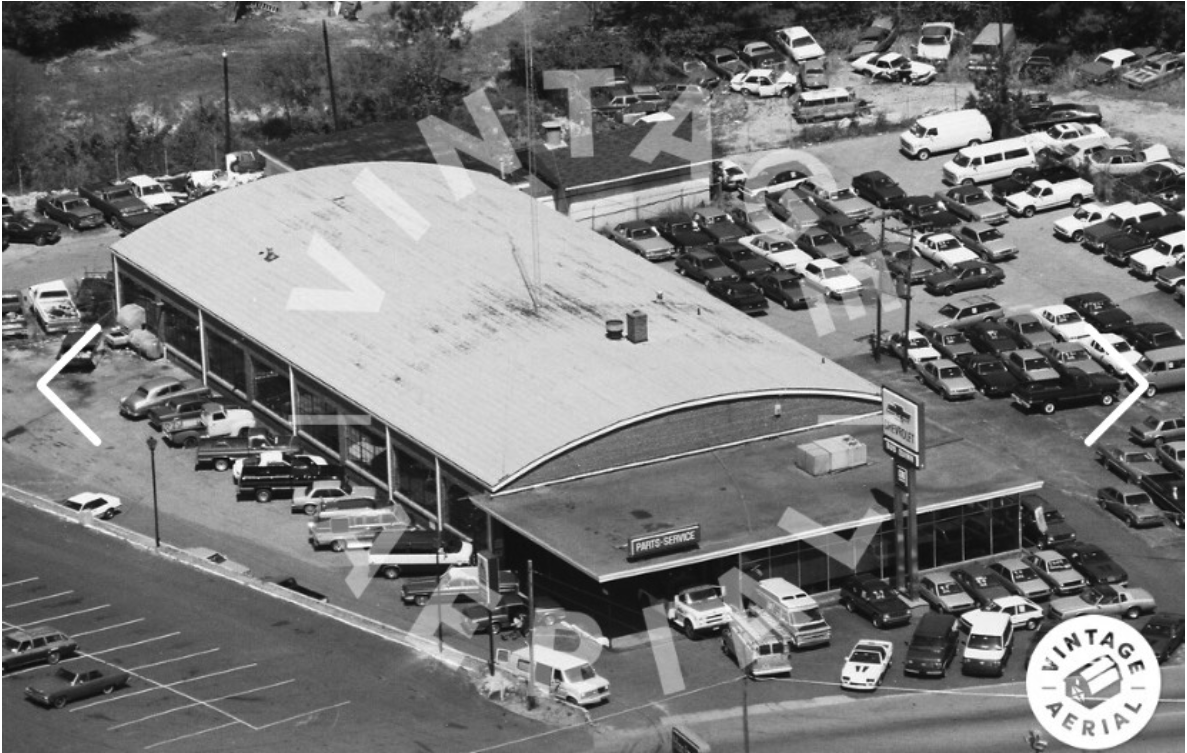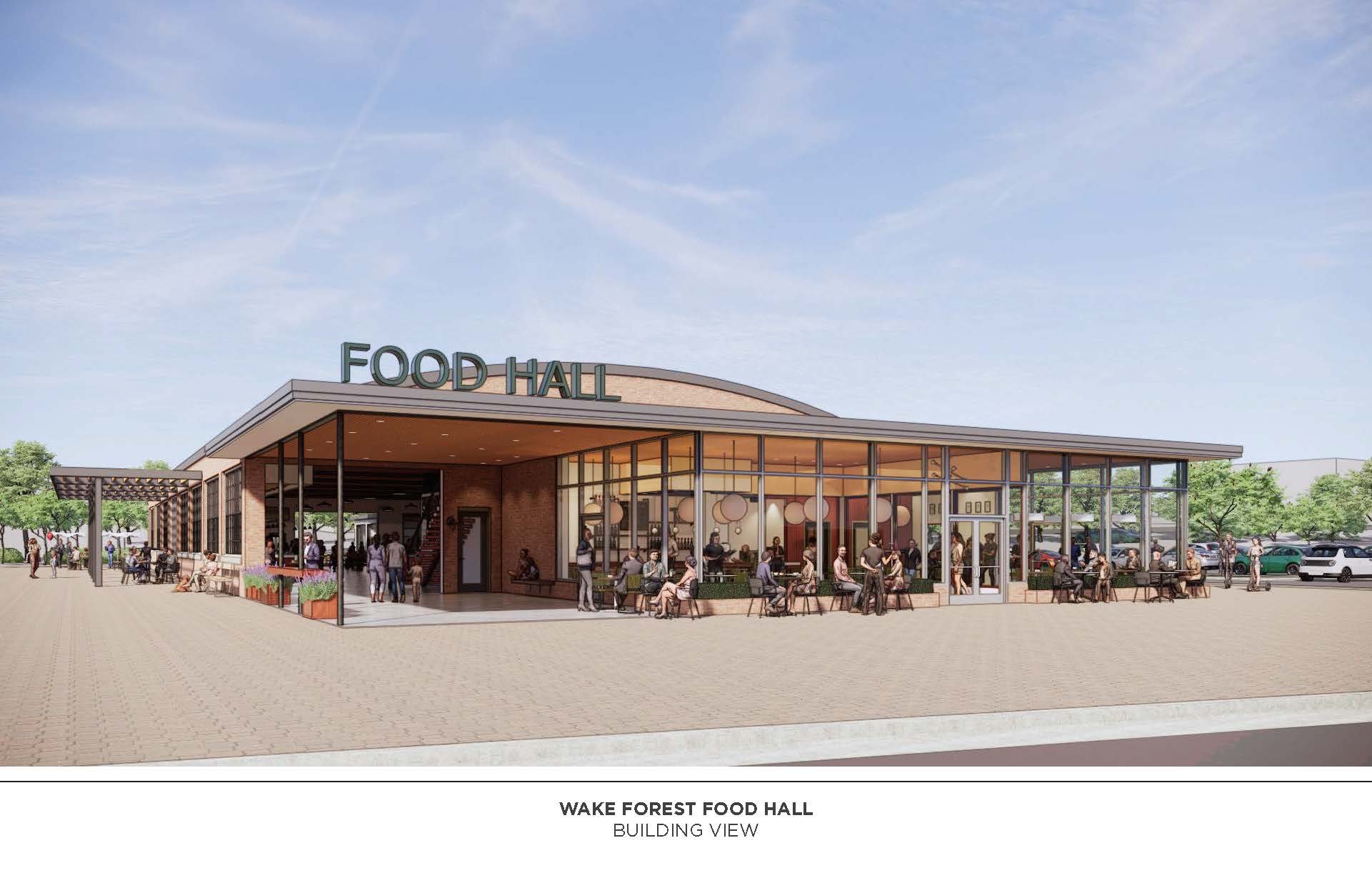Work is already underway on a 10-acre redevelopment vision at the north end of downtown Wake Forest that will amplify the town’s appeal as a “live, work, and play” destination.
At the heart of the plan by Alliance Group of NC is the preservation of a one-time S&W Chevrolet dealership housed in an 80-year-old building into an attractive venue for breakfast, lunch, and dinner. The yet-to-be-named food hall will offer indoor and outdoor food and beverage options and special events via food vendors and full-service restaurants.
Longtime Wake Forest resident Jacob Anderson is applying his experience in downtown redevelopment in the Triangle and Charlotte real estate markets to create a mixed-use destination for his community. “We’re a little unique in the fact that we’ll have lots of indoor and outdoor seating and open space,” says Anderson, who is the owner and broker-in-charge of Alliance Group. He is already in talks with potential tenants drawn from regional food entrepreneurs and beverage makers.
Anderson plans to expand the 16,000-sq.ft. building near the intersection of East Roosevelt Avenue and North White Street with outdoor amenities and the addition of rooftop space overlooking downtown Wake Forest. “We think it’s one of the more unique buildings downtown,” he says.
Alliance Group anticipates engineering and construction plans to be approved by the end of the year. Anderson expects the food hall to be open and serving food and beverages by the summer of next year. “It’s ambitious, but I hope to have the first restaurant in by summer of 2023,” he says.
Conceptually, food halls have swept the country since the early 2000s, beginning in metro areas like Boston, Brooklyn, and Atlanta. The format offers informal dining of gourmet foods typically
from local enterprises -- not the national fast-food brands found in most shopping mall food courts. For their part, vendors benefit from co-location, steady foot traffic, and collaborative promotion. Historic real estate is often redeveloped and reused. While not technically historical, the glass-front former automotive dealership set to become Wake Forest’s first food hall dates to the 1940s.
Setting Anderson’s vision apart from other food halls will be a 2.5-acre park and outdoor space surrounding and behind the building. The now-wooded area will become a pet-friendly, park-like setting ideally suited for private events, concerts, or just a place to relax with family and friends. “The open space is what’s going to make this food hall different,” Anderson says. “We are planning an inviting, relaxing indoor/outdoor destination with a great variety of food items, beverages, seating options, and entertainment all intended to continue the sense of community for which downtown Wake Forest is already known.” Plans include re-opening a creek that has been piped beneath the project for the last 75 years. Also included at the food hall will be about 3,500-sq. ft. of indoor event space available for gatherings to compliment the outdoor opportunities for private events.
The new venue will be an easy walk for those living or working downtown, and ample parking will add convenience for those guests who will drive there. Anderson anticipates the site will be a draw for consumers from all over the Triangle seeking something different or those visiting the town’s growing array of retail options. “We want it to be a destination for a wider tradable area – as much as an hour in each direction,” he says.
Another element of Alliance Group’s transformation of the property is already visible: the development of 110 condominiums by Stanley Martin Homes is set to rise along the White & Wait Street side of the block. Now under construction, the four-story condos will range from 1,500- to 2,500-sq. ft. The residences should be ready for occupancy by early 2023.
“What Jacob and his team are doing will invigorate the town’s reputation as a live-work-and-play community – a space where our residents and workers can relax and connect socially,” says Jason Cannon, president of Wake Forest Business & Industry Partnership (WFBIP). “I fully expect the Wake Forest food hall will energize the north end of White Street the same way the Loading Dock is having a transformative impact at the south end of White Street.”
Anderson gives considerable credit to Town officials for helping move his concept into reality. “The Town from top to bottom is part of the reason any of this is happening,” says Anderson, who has worked with communities across North Carolina on similar projects. “Wake Forest tends to be very community-oriented,” he says. “Jason and Staff with the Town have been extremely helpful.”
Alliance Group is adept at navigating the zoning, permitting, and other processes necessary for complex real estate transactions. In addition to its brokerage services, Anderson’s team strives to create value-added opportunities for property owners while also influencing the development of dynamic, sustainable modern communities where people can reside, recreate, and engage their careers. “We do projects from Raleigh to Charlotte,” says Anderson, who has called Wake Forest home for the past 20 years. “This one is different. It’s home.”









